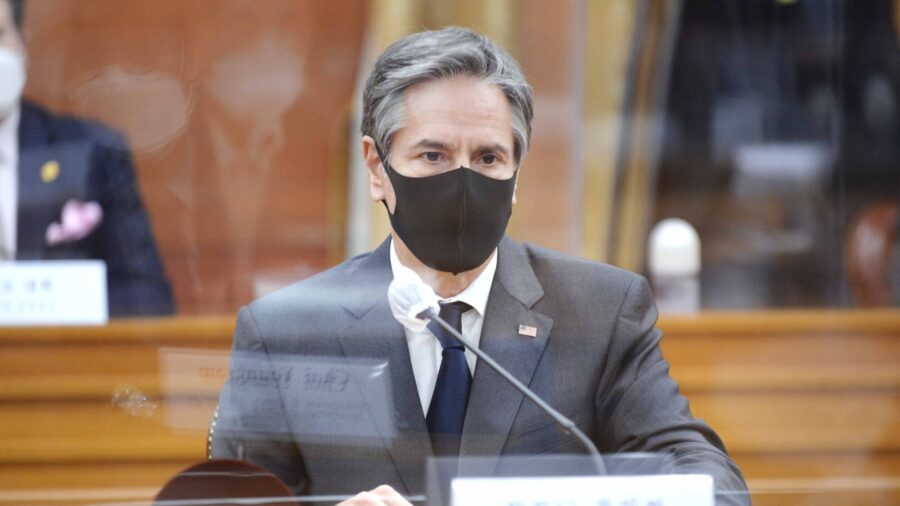HONG KONG—The United States sanctioned an additional 24 Chinese and Hong Kong officials over Beijing’s ongoing crackdown on political freedoms in the semi-autonomous city, just ahead of the Biden administration’s first face-to-face talks with China.
The step reflects Washington’s “deep concern” about the erosion of Hong Kong’s autonomy following changes to its election system endorsed by China’s ceremonial legislature last week, Secretary of State Antony Blinken said in a statement Wednesday.
Foreign financial institutions that deal with the 24 officials would be subject to U.S. sanctions, the State Department said.
The planned changes to Hong Kong’s electoral law give a pro-Beijing committee power to appoint more of Hong Kong’s lawmakers. The move will reduce the proportion of those directly elected and ensures that only those determined to be truly loyal to Beijing are allowed to run for office—effectively shutting opposition figures out of the political process.
The U.S. announcement was made during a visit by Blinken and Defense Secretary Lloyd Austin to Japan and South Korea, both of which are wary of China’s growing economic, military, and political heft.
While in Tokyo, the two officials delivered a joint statement with their Japanese counterparts expressing concern about Beijing’s human rights violations in the western Xinjiang region against ethnic minorities and China’s determination to alter the status of a group of uninhabited islets administered by Tokyo but claimed by Beijing. The two arrived in Seoul on Wednesday for talks.
On Thursday, Blinken and national security adviser Jake Sullivan are scheduled to meet Foreign Minister Wang Yi and the foreign affairs chief of China’s ruling Communist Party, Yang Jiechi, in Anchorage, Alaska.
The U.S. has said it will be an initial opportunity to address intense disagreements over trade and human rights in Tibet, Hong Kong, and Xinjiang as well as the coronavirus pandemic.
President Joe Biden’s administration appears committed to taking a tough line on those issues.
China has rejected all criticism of its policies toward Hong Kong, accusing foreign governments of interfering and saying political tightening was necessary following months of anti-government protests in 2019.
Last June, Beijing imposed a sweeping national security law on the city and Hong Kong authorities have arrested most of the prominent pro-democracy supporters and outspoken critics. Many others have fled abroad and renewed their calls this week for members of the Hong Kong diaspora to keep up the fight for freedoms promised to the city after the 1997 end of British colonial rule.
Among those included in the sanctions are Wang Chen, a member of the Chinese Communist Party’s elite 25-member Politburo, and Tam Yiu-chung, the Hong Kong delegate to the Chinese parliament’s standing committee, which drafted the national security law.
Several officers from Hong Kong’s National Security Division were also sanctioned, including Li Kwai-wah, a senior superintendent, as well as Edwina Lau, a deputy commissioner of the Hong Kong police force and the head of the division.
Starting last October, the United States had already sanctioned 10 officials including Hong Kong leader Carrie Lam and Deputy Director of the Hong Kong and Macao Affairs Office Zhang Xiaoming. Sanctions forbid their travel to the United States and block their dealings with American financial institutions.
Lam said in a television interview in November last year that the sanctions meant she receives her salary in cash and has “piles of cash” at home because she was cut off from banking services in Hong Kong.
Chinese officials have shrugged off the impact of sanctions, with some calling their designation a point of pride in what they view as an attempt to undermine Chinese control in Hong Kong and its rise as a competitor to the United States.


